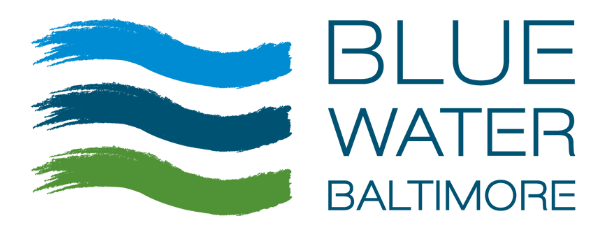Let’s fix Baltimore’s sewage problem
Baltimore’s aging sanitary sewer system causes millions of gallons of raw sewage to enter our waterways each year.
We work on the Baltimore sewage problem in multiple ways. We enforce water pollution laws, advocate for sound policy making, and ensure our local government is held accountable when sewer overflows happen.
Our Waterkeeper team monitors and samples local waterways for several water quality parameters that help track down sewage overflows.
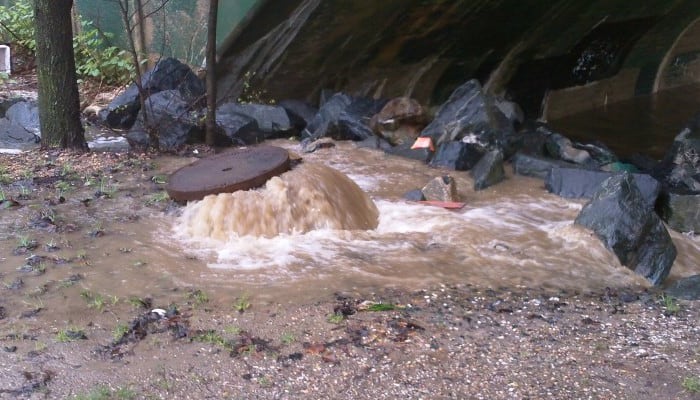
Baltimore sewage
The Baltimore sewage problem won’t fix itself.
Getting sewage pollution in our waterways under control is a complicated challenge. To address the issue we work with volunteers, legislators, enforcement agencies, and residents in seeking effective solutions.
Sewage backups in homes and buildings are a big problem in Baltimore. Heavy rainfall coupled with the city’s crumbling infrastructure causes toxic sewage to back up into residents’ homes thousands of times a year. These backups put residents’ health, homes, and financial security at risk.
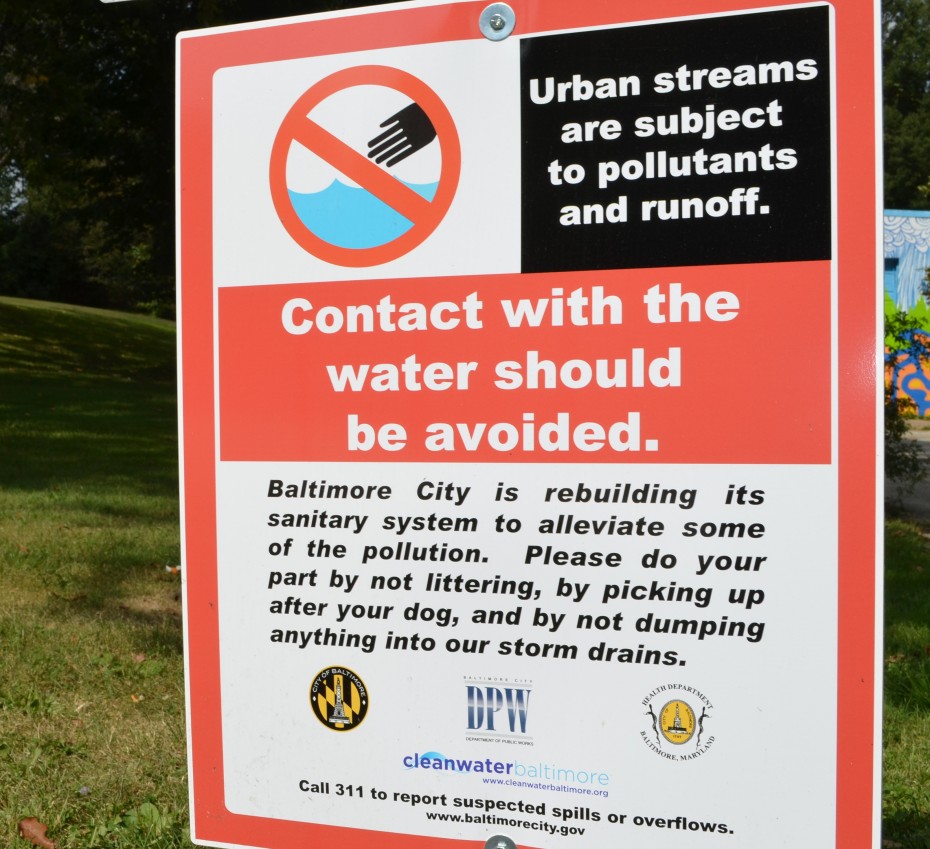
What to do if you experience a sewage backup
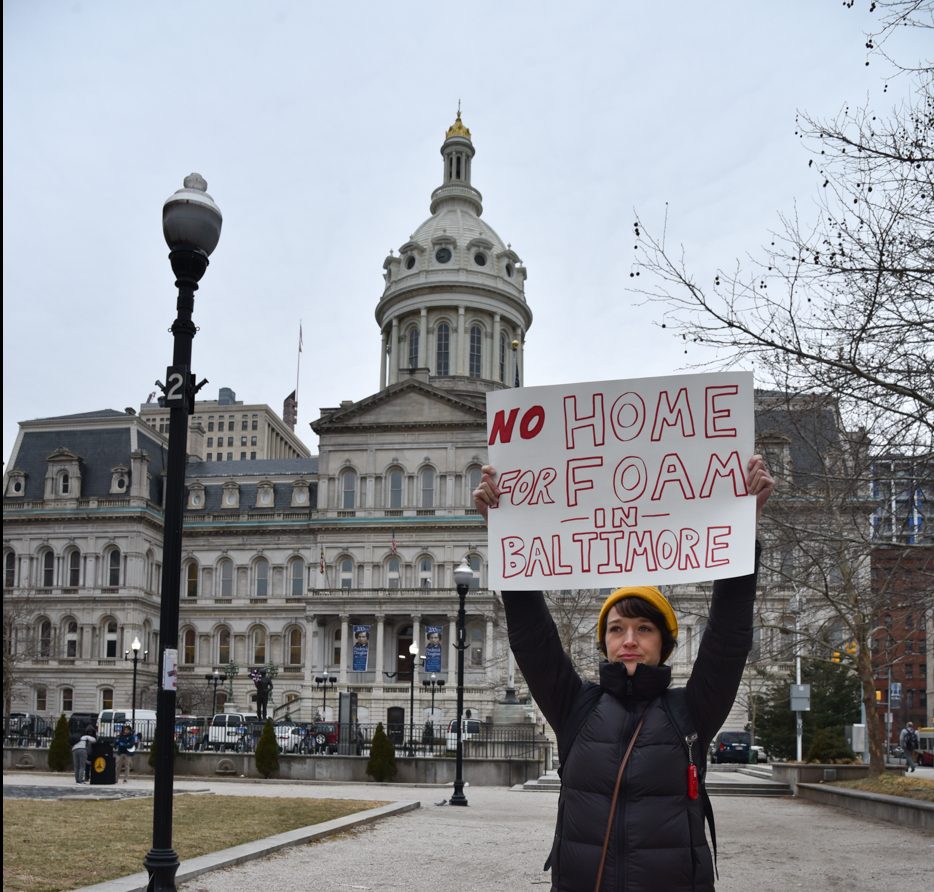
1. Report it!
Baltimore City: Report the backup to the Department of Public Works as soon as possible by calling 311 or using the online portal.
Baltimore County: Report the backup to the Bureau of Utilities as soon as possible by calling 410-887-7415 or 410-887-5210 after-hours. Additional information is available online.
Anne Arundel County: Report the backup to the Emergency Services Unit as soon as possible by calling 410-222-8400.
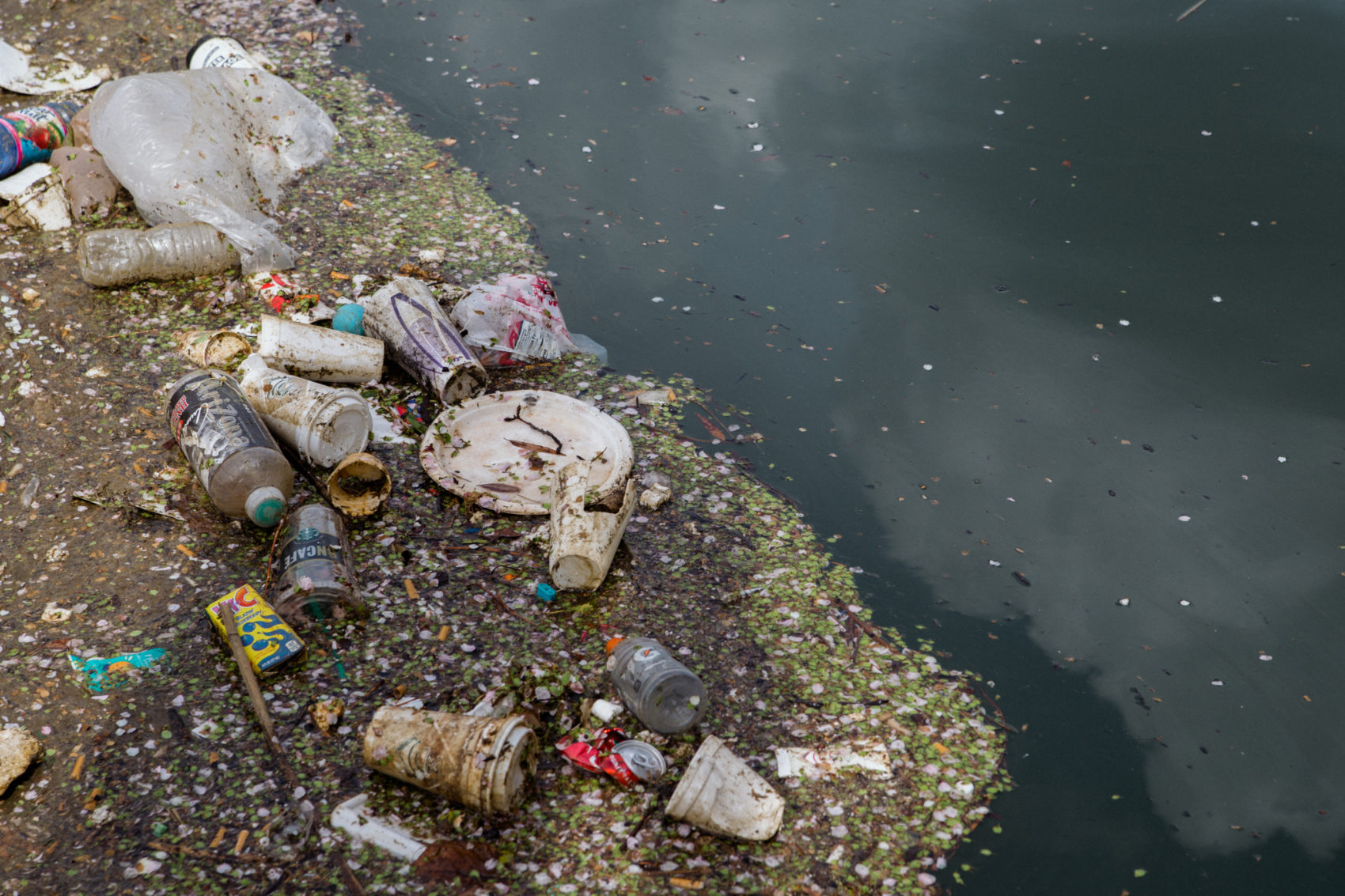
2. Do not clean it up yourself!
Raw sewage carries viruses and pathogens that pose significant health hazards. Please contact professionals to clean it for you. If handling items contaminated with sewage is unavoidable, always wear gloves, a mask, and protective clothing. Wash your hands thoroughly with soap and water after handling items, and consult a health professional if you experience any signs of illness.
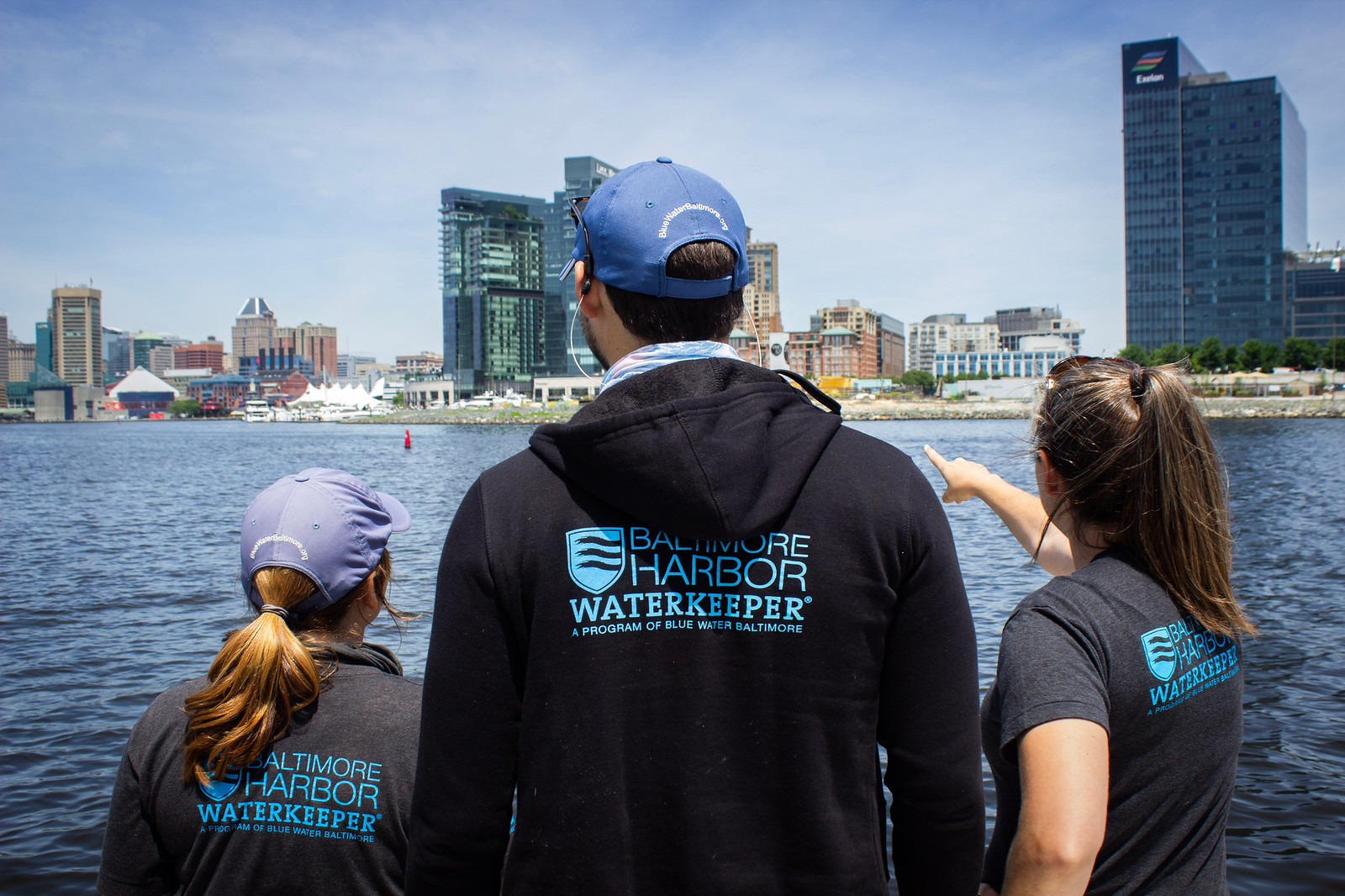
3. Baltimore City Residents
Report the backup to 311 as soon as possible so DPW can send an inspector to your home to determine the cause of the backup. If wet weather is found to be the cause of the backup, you are eligible for direct cleanup assistance through the Sewage Onsite Support cleanup program OR for reimbursement (only for cleaning and disinfecting costs) up to $5,000 via the Expedited Reimbursement Program. You can also consider filing a General Liability Claim for additional cleanup costs and property damage.
Baltimore City’s Building Backup Reimbursement Program
Sewage backups in homes and buildings are a big problem in Baltimore. Heavy rainfall coupled with the city’s crumbling infrastructure causes toxic sewage to back up into residents’ homes thousands of times a year. These backups put residents’ health, homes, and financial security at risk.
In April 2018, Baltimore City launched a pilot Expedited Reimbursement Program to help residents with the costs of cleaning up a sewage backup in their home. The pilot was intended help the city create a permanent program required by the Sanitary Sewer Consent Decree. So, has the program helped?
Application shortage
More than 4,600 reports of building sewage backups were reported to 311 in the program’s first year, but only 74 households applied for reimbursement. Of those, Baltimore City Department of Public Works (DPW) rejected all but 10.
Funding not paid out
Of the $2 million set aside to reimburse residents, less than $15,000 (less than one percent) has been paid out.
Eligibility
Eligible applications can receive up to $5,000. However, these funds can only be used for cleanup and disinfecting. In many cases, this is far from enough.
Strict red tape
Program restrictions and requirements disqualify thousands of people who would benefit most from this program.
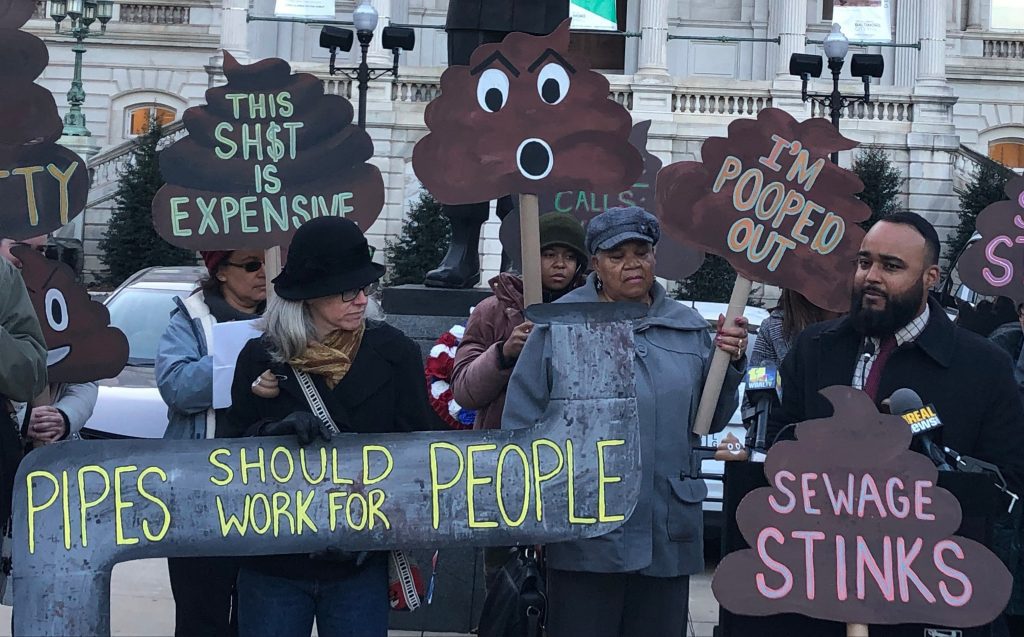
Baltimore sewage problem
Stand up against sewage
In order to protect our waterways and public health, we need to stand up against sewage. Sewage doesn’t belong in our streets, or our homes!
Here’s how to help

Stay Informed
Join our mailing list to get updated information on water qualities, on opportunities for making impact, and for special invitations to local events.

Volunteer with us
Meet new people, explore Baltimore, and lend a helping hand as a Blue Water Baltimore volunteer to protect and improve our city!

Become a member
A donation of any size makes you a member of Blue Water Baltimore and part of our fight for clean water and strong communities.
